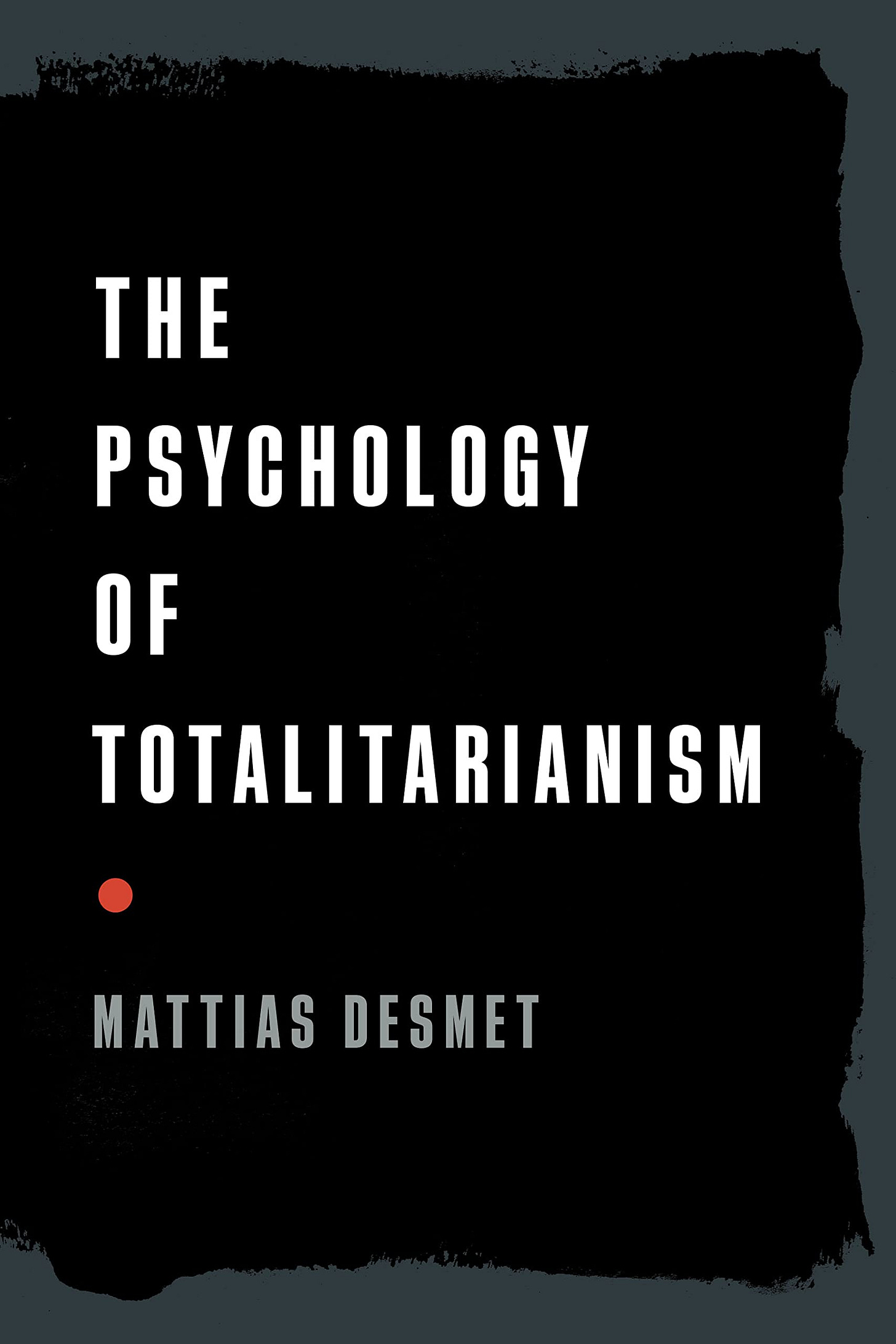The underlying forces of human nature during the covid years
And the absolute necessity to have a shared understanding of the psychological and social mechanisms that were at play during this crisis

3 years have passed, almost to the day, since the now infamous lockdowns started in the spring of 2020.
In all honesty, I grudgingly decided to address this issue again in a short essay even though I promised myself multiple times not to go down that road in the last year. First, because of the antagonistic nature of the subject. Second, readers are probably fed up, with the multitude of articles, podcasts and videos on covid that are already out there to be consumed, commented and challenged.
Why bother, right ? What else is there to write about on the matter anyway ? Most probably nothing.
But in the end, something drove me to write on the subject once again even though I might risk loosing some subscribers here and there (for being off the usual topics addressed in this Substack). What we lived through since March 2020 is just too crazy to not write anything in retrospect.
In addition, it seems no sincere or honest post-mortem was initiated by civil society or institutional authorities, and I have an unsettling feeling the most important lessons have yet to be learned by a critical mass of citizens in our respective countries. Everybody just moved on.
In the summer of 2021, I launched
with a first essay that put forward the argument that the particularities of French Canadian responses to covid were no surprise, based on their inherent historical and socio-cultural traits. Since then, I voluntarily avoided the issue to focus on a variety of other subjects that include political polarization, the historical evolution of public discourse or historical interpretations of various contemporary Québec narratives.In any case, if you’re interested in that August 2021 piece, see link below:
What changed my mind in recent months were two books I read almost back to back. At first, I was not expecting these books would be quoted in the same essay but in the end, both exhibited eye-opening qualities and thought-provoking arguments that helped me in understanding the population wide reaction during the covid crisis.
Above and beyond all the talks and debate over the usefulness of masks and lockdowns, or the safety and effectiveness of the vaccines, or the legitimacy of governmental mandates within a democratic framework, my main fascination during this ordeal lied elsewhere. It lied mainly in the rapid behavioral changes I witnessed of my fellow compatriots on a massive scale.
Since the onset of what we can now call the covid years, I was struck (even destabilized) by the cultish devotion of some people to apply the prescribed health measures imposed by our public authorities. From one day to the next (or so it seemed at the time), many colleagues, neighbors and family members traded a lifetime of nuanced sound judgments on health precautions, governmental overreach tendencies or economic principles for a simplistic world view that rapidly escalated in a series of contradictory mandates.
With a zeal equaled only by the most brainwashed members of bizarre cults, citizens even felt in some instances a moral obligation to denounce neighbors. What on earth could trigger such a phenomenon, I repeatedly asked myself ?
In the early days, when some observers identified such behaviors as earmarks of totalitarian states, most people were outraged, even disgusted by the comparison. How dare we compare the covid responses and attitudes of the population with 20th century totalitarian regimes ?
Turns out, as described so eloquently by psychology professor Mattias Desmet, leading expert on the theory of mass formation, what we experienced during the covid years have all the manifestations of a society being under a form of mass hypnosis. In the continuity to what Gustave Le Bon theorized in his concept of the psychology of crowds at the end of the 19th century, Desmet puts forward a pretty convincing argument with his theory.
For a detailed explanation from Desmet himself, I strongly suggest the following documentary.
Desmet’s argument, in short, stipulates that the population wide psychological characteristics which are prerequisites to the establishment of a totalitarian-style regime were present in most western countries at the start of the covid crisis: Atomization of society, isolated individuals, free-floating anxiety and agression.
My only advice to anyone reading this, feeling uneasy about such a theory being a possible framework to analyze the past few years, is the following. To honestly assess this theory, one needs a high dose of humility and openness to new ideas. One must be willing to be challenged in its core beliefs. And since we are dealing here with a discipline well beyond my normal expertise, I must stress that I landed here only by curiosity and a sincere willingness to learn and understand.
A single framework never offers a complete explanation of any phenomenon but can provide a useful angle to decode the world around us.
See the following excerpt from his latest book The Psychology of Totalitarianism on examples of behaviors inside this totalitarian state of mind:
“ … psychological characteristics of a totalitarian population: the willingness of the individuals to blindly sacrifice their personal interests in favor of the collective, radical intolerance of dissident voices, a paranoid informant mentality that allows government to penetrate the very heart of private life, the curious susceptibility to absurd pseudo-scientific indoctrination and propaganda, the blind following of a narrow logic that transcends all ethical boundaries (making totalitarianism incompatible with religion), the loss of all diversity and creativity (making totalitarianism the enemy of art and culture), and intrinsic self-destructiveness (which ensures that totalitarian systems invariably annihilate themselves in the end).
, professor of psychology
Reading this quote, if you are minimally honest with yourself, you can acknowledge that the worst periods of the covid years were often characterized by such behaviors. And then suddenly, it’s as if the population spontaneously escaped this hypnotic mode that permeated the society for months, even years.
Try initiating a conversation in March 2023 to anyone around you who fanatically followed the rules back in April 2020 or during the 2021-22 vaccine roll out. Most of them will act as if nothing in particular happened. As if no radical actions were taken. Strangely, such an individual will rarely exhibit remorse in any form or another.
To be clear, I am not pretending here that I was 100% immune to the enormous social pressures generated by such mass formation but I always felt uncomfortable with the messianic and simplistic nature of the message communicated at large in society: “every life is worth saving”, “it is rational to segregate the unvaccinated to prevent the spread”, “wearing masks all day is not an issue for children”, … must I go on.
Talk about expedited assumptions that did not age well.
The second book that stood out recently for me was Wanting by
. Luke has been studying the work of René Girard for years now. As a speaker and author, he helped in bringing his theories accessible to a wider and more contemporary public.A student of history, Girard argued that even though humans tend to believe that they generate their own desires, most desires come from others, from the social ecosystem around us.
And since we end up desiring the same things, conflicts become inevitable. Thus, this cycle of social contagion driving our desires and behaviors can lead to negative outcomes that will, according to Girard, be dealt with the scapegoat mechanism.
“ In his study of history, [René] Girard found that humans time and time again turned to sacrifice in order to stop the spread of mimetic conflict. When societies were threatened with disorder, they used violence to drive out violence. They would expel or destroy a chosen person or group, and this action would have the effect of preventing more widespread violence. Girard called the process by which this happens the scapegoat mechanism.”
, entrepreneur, educator and author of
During every wave of the covid epidemic, scapegoats were quickly identified to canalized the frustrations and avoid an escalation of violence. At first, the scapegoats were those who refused to wear masks or respect lockdowns. The anger then shifted towards those who decided to travel abroad for example. And finally leading to the ultimate scapegoats of the covid years: the unvaccinated.
If you wish to learn more on mimetic desire, I recommend you check out
, a great starting point.My goal here was obviously not to take a deep dive into theories I don’t master fully but to share some thoughts, offer alternative interpretations and start a dialogue, to open a true post-mortem of the events that have changed our lives forever.
For me, I reiterate the fact that the psychological theories seen above are analytical grids or frameworks, that must be taken amongst a variety of others.
In conclusion, though many aimed their anger outwardly in recent years towards governments, public officials and thought leaders, I believe the real answer lies within. We should try to understand and mediate in the future our blind spots stemming from mimetic desire, crowd psychology and the like.
We must learn that we are our worst ennemies, especially if we fail or refuse to recognize those underlying psychological mechanisms that can lead to disastrous social outcomes in particular conditions.








I'm so late on my substack subscriptions that I am just now reading this piece you wrote back in March.
I am thankful your did not ignore that feeling you had that drove you to speak on this issue, because this was a great read. On this being a sensitive topic is exactly why honest voices like yours are needed, least our memories start to fade and we risk the chance of forgetting lessons that we should have learned.
My hope in humanity was definitely shaken in these past few years, a part of me is still disappointed to know that despite all that we should have learned from history, we are still so easily manipulated and so quick to tow the line against our neighbors, friends and family. While many have conveniently moved on and probably admitted their own faulty thinking in the silence of their own consciences, many others have not - I hold no resentment but it was a needed wake-up call. The empty "we are all in this together" was and will always be a complete lie, especially while the ones uttering it from their government podiums are deciding the fate of everyday citizens based on their own self-interest.
This was a lot to absorb, I can’t lie, but your line “Everybody just moved on” is hard to ignore.